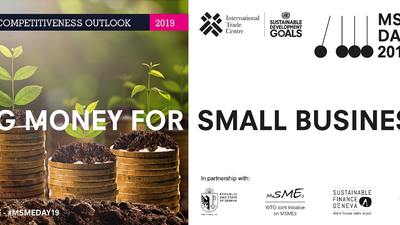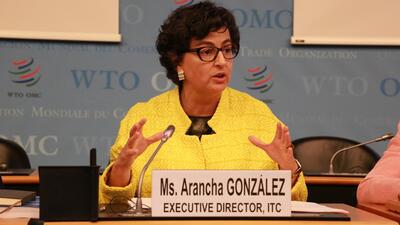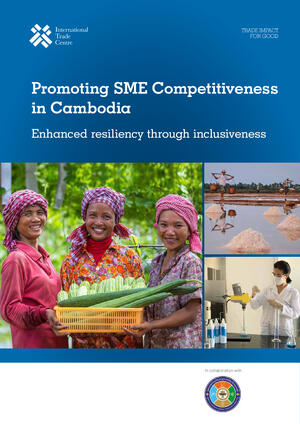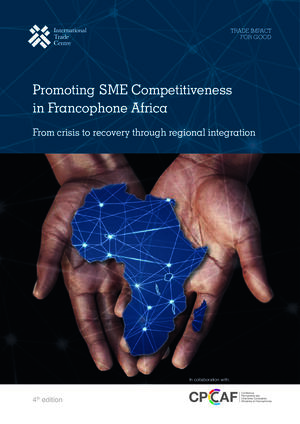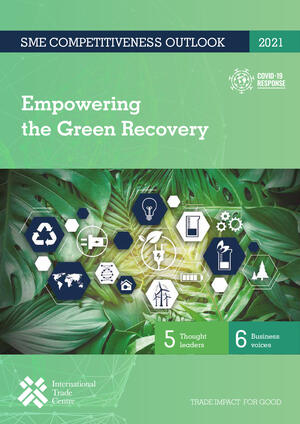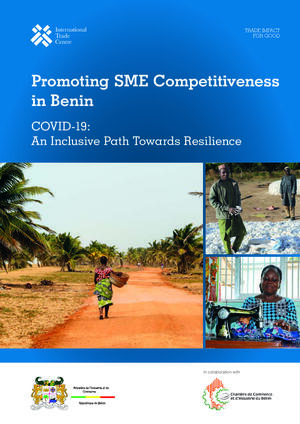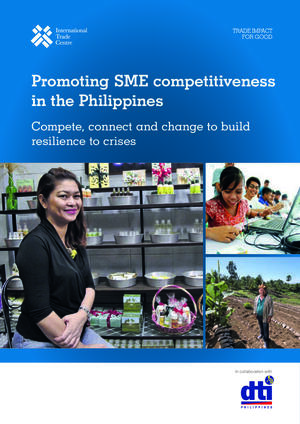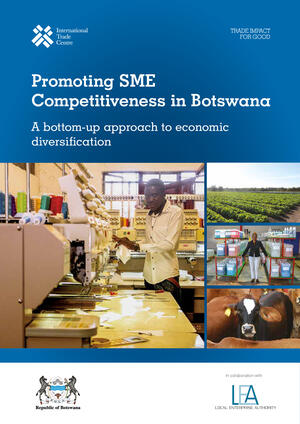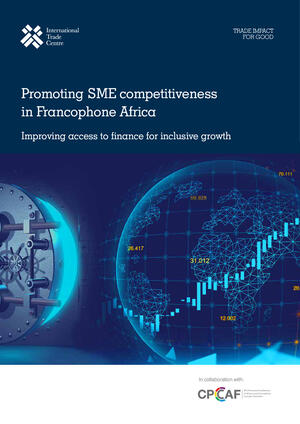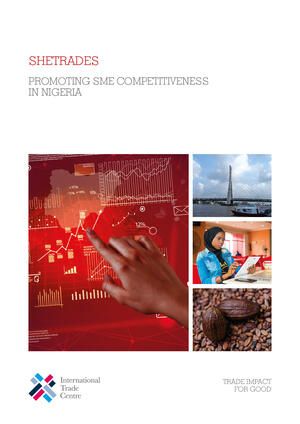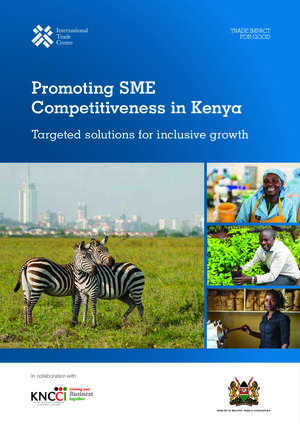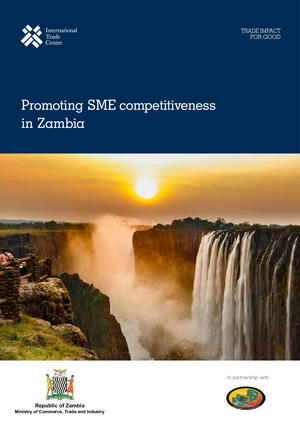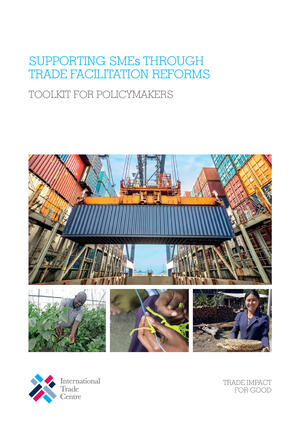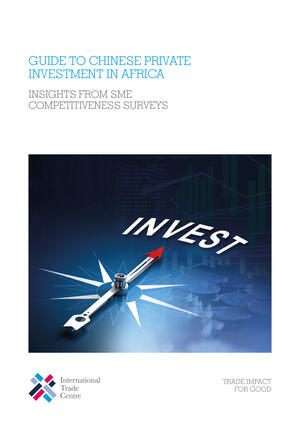SME COMPETITIVENESS OUTLOOK: MEETING THE STANDARD FOR TRADE(1)
Speech by ITC Executive Director Arrancha Gonzàlez at WTO
Good afternoon,
I’m delighted to welcome you and our panellists to the launch of the second edition of ITC’s flagship publication, the SME Competitiveness Outlook.
This report stands for continuity and innovation
This year’s report represents both continuity and innovation.
We continue to develop themes related to the competitiveness of SMEs. Like in the first edition you will find a wealth of data and information on SME competitiveness. But we have expanded this information and now present 35 country profiles with new data on regulations and on business perceptions of those regulations in the relevant country.
At the same time we have innovated focusing this year’s report on the role of standards and regulations for SME competitiveness. This is reflected in the report’s subtitle: Meeting the Standard for Trade.
This title also reflects that we continue to take a business angle while analysing a theme relevant for trade policy makers. We notably use terminology in the way SMEs do. SMEs are often not familiar with the term “non-tariff measures”, a term that is so important for our discussions in Geneva. SMEs also often do not distinguish between requirements imposed by governments or requested by other players such as private sector and NGOs. The reality is that the distinction today is somewhat blurred.
Government regulations, for instance, often refer to private sector standards. Vice versa, voluntary sustainability standards often refer to international governmental norms. The most “popular” of those norms are the ILO core labour conventions. We show in this report that 58% of all voluntary standards examined refer to them.
This year’s core theme is important and critical
The term “standards” or “regulations” may sound technical or even boring at first. But if you think a few seconds further, you realize that we are dealing here with a topic that is:
- Among the most relevant for your daily life, from the safety of sockets to the ability of mobile phones to connect to another;
- Affecting every step of running a business, from accountancy to management or logistics;
- Among the most critical for popular support for trade; Standards and regulations are not only an integral part of your life, they are also an integral part of international trade. And if anything, their role is only going to increase.
Trade in the 21st century is increasingly consumer centric. With increased access to information and knowledge, consumers are more empowered than ever to express their desire for goods and services that are socially and environmentally sustainable. Consumers also signal the importance they attach to the protection of their own health, the protection of their economic interests and the protection of their privacy. They are also able to express if they are not convinced by the type of globalization that they are experiencing.
Trade negotiators have for many years defended an open trade agenda with the argument that consumers will benefit from it. Today consumers are telling us that they want trade, but also what kind of trade they want. And they are telling us that they want “good trade”. And we need to find ways to respond to their request. Standards and regulations for both goods and services will be part of that response as they are essential to achieve social responsibility, environmental sustainability and consumer protection while facilitating trade by guaranteeing compatibility.
- Among the factors that determines the inclusiveness of trade;
Standards and regulations can facilitate trade, provide responses to consumer demands and help governments to meet policy objectives. But they can also represent a burden for exporters, notably if they are not supported by the appropriate technical infrastructure in the country, at the border and in the destination market. Those burdens are higher for small and medium sized exporters and therefore represent a serious threat to the inclusiveness of trade.
Our research shows that increases in the burden associated with standards and regulations hit small firms twice as hard as large firms. We also find that female owned businesses suffer more from procedural obstacles related to non-tariff measures than male owned businesses.
For trade to be inclusive, it is therefore imperative to do what is possible in order to reduce as much as possible the costs associated with implementing and proving compliance with standards and regulations.
- Among the most strategic areas for policy makers at the national level.
Policy makers and trade and investment support institutions have a key role to play when it comes to facilitating the operation and implementation of standards and regulations as they are the ones who design, build and contribute to the technical infrastructure necessary for standards to operate.
This technical infrastructure includes bodies involved in creating, maintaining and implementing standards and regulations, both at and behind the border, in the form of national standards agencies, conformity assessment bodies, metrology and accreditation bodies and more. The number of agencies and the complex nature of their interdependence, makes improving technical infrastructure a real challenge.
Setting up the necessary infrastructure and supporting the necessary processes is costly for governments, in particular because the nature of standards is very diverse. And resource constrained countries may sometimes have to make hard choices when it comes to supporting the export of products with an internationally recognized technical infrastructure.
What this report offers
The key finding in this report is that only the fittest survive: there is a direct correlation between standards and the competitiveness of SMEs. Being able to meet standards is a precondition for businesses to be internationally competitive. And when they internationalise, they become more competitive.
In order to help provide support to increase the number of survivors in particular in developing countries, this report offers two tools and one piece of strategic guidance.
1/ Guide for SME managers
To assist SME managers to navigate the complex world of standards, the report contains guidance for SME managers on how to select and implement standards and regulations.
2/ A Five-Point Action Plan for Policy makers and TISIs
To strengthen firms’ ability to adopt standards and prove compliance, helping more trade become ‘good’ trade.
3/ Strategic guidance
To support policymakers in thinking through their investment decisions related to standards infrastructure, this report combines three pieces of information in regional snapshots and 35 country profiles:
- Information on product lines with unexploited export potential and on diversification opportunities.
- Information on regulatory intensity across sectors
- Information on SME performance when dealing with standards and regulations.
Together, this information provides a useful starting point for export or investment strategies, for discussions with potential investors in lead firms and for national decision making processes regarding investments in standards-related infrastructure.
How ITC works with partners at the global and national level
A final point. ITC does not work in isolation. Both in the field and in Geneva, ITC works closely with public and private-sector partners for greater impact on the ground.
This is why today’s panel benefits from our partners from UNECE (SG Christian Friis-Bach), UNCTAD (Deputy SG Joakim Reiter) and ISO (Acting SG Kevin McKinley).
I am also very pleased to welcome Mr Yves Jobin from SGS, a world leader in inspection, verification, testing and certification. I am also particularly pleased to welcome the CEO of the Association of Ghana Industries (Seth Twum-Akwaboah). AGI has collaborated with ITC in our first larger scale data collection exercise to assess SMEs’ capacity to connect, compete and change at the national level and using ITC’s SME competitiveness analytical grid. You have served as inspiration to Morocco and Kenya who are now working with us to gather firm specific data.
Our analytical work this year has also benefited from collaboration with the European University Institute and from ITC’s involvement in the PRONTO research network. This is why we are happy to have Ronald Davies with us today.
Let me in closing pay tribute to Senegal Trade Minister Alioune Sarr who has championed SME competitiveness at home and whom we are pleased to have with us today.




